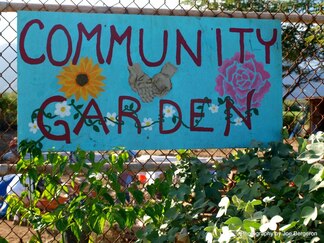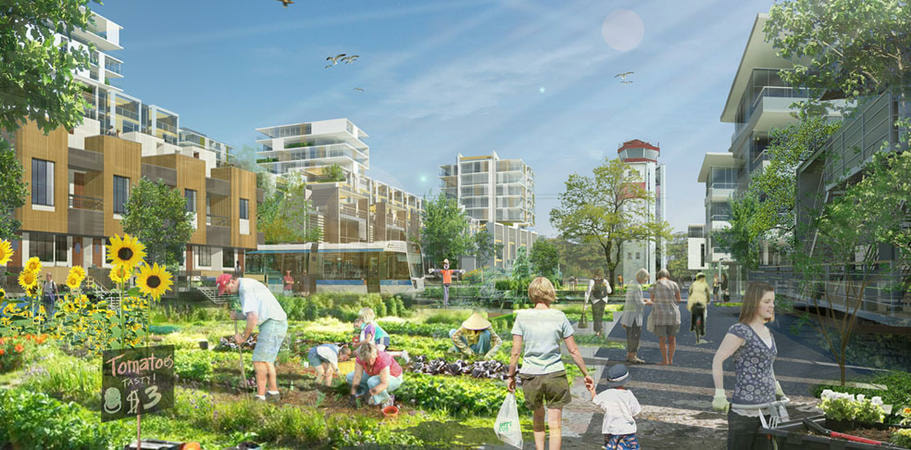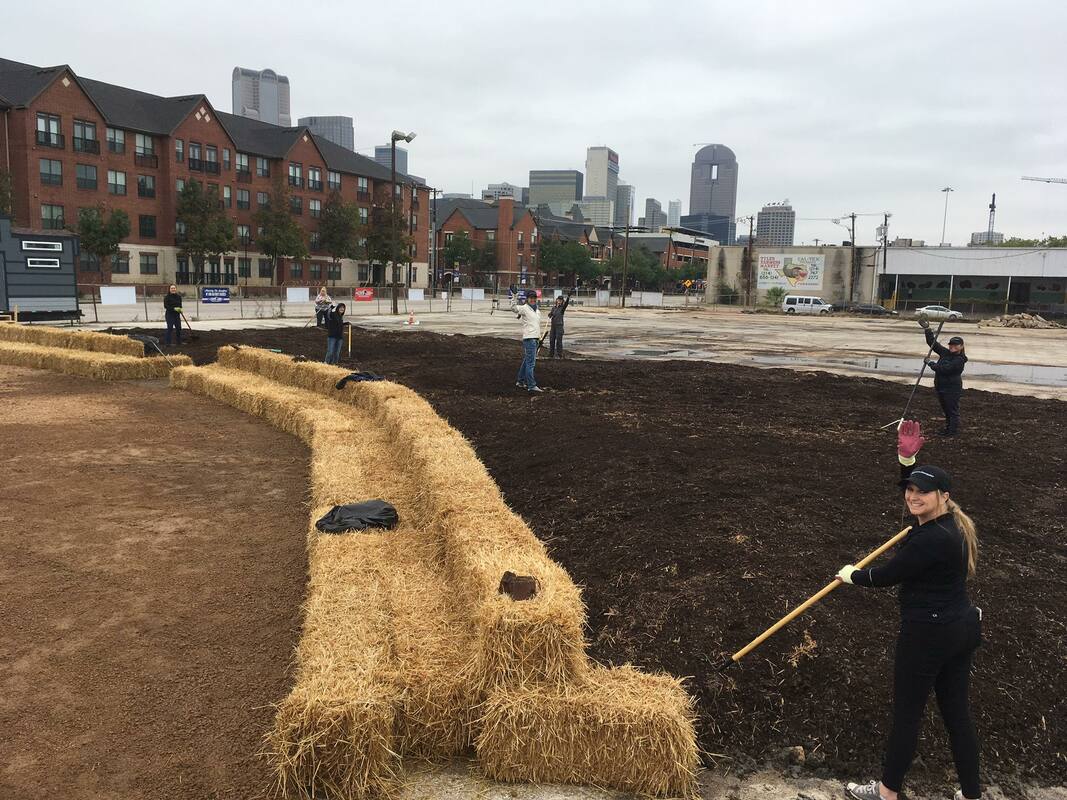|
Article Source: urbanhomegrown.com With our nations distressed food system, food insecurity, food deserts, and the threat of some SHTF scenario, we should all take full advantage of the smartest thing we could possibly do to avoid a food crisis – grow food. Since eating is such an important piece of our existence, why wouldn't everybody be growing food? Even living in a small space, patio and container gardening can be a source of fresh food. Microgreens are another easy way to keep a fresh supply of healthy food on hand, all the time. If you live in a home with an actual yard and dirt, you can even grow enough food to supply your family, share with neighbors and sell at the local farmers market.  Community gardens, farmers markets, urban farms and agrihoods are on an upward trend. Eco-tourism is a thing. Woofers and farm internships are increasingly popular, and more home homeowners are now converting their lawns into edible landscapes. Some cities are even supporting the movement toward converting vacant lots into food forests. All of these are giant steps in the right direction. But in a real food crisis, are those things enough to sustain the nation’s population of over 320,000,000? Probably not. Would a garden sustain you and a few neighbors? Probably so. The more gardens we have, the more neighbors we can feed in a crisis. Eighty percent of the U.S. population lives in an urban or metropolitan environment. Compared to the number of residents abiding in the city, we simply do not have enough urban food producing spaces to avert a food crisis scenario. Every apartment complex is a prime candidate to replace grass with food for its residents. Vacant city lots scattered throughout every city are perfect for growing food. Every housing development and subdivision should have a community garden and farm stand at its hub. Community gardens not only supply healthy fresh food and help combat preventable diseases, they provide a neutral, safe space to cultivate friendships and build stronger communities. In a food crisis, local community gardens would be a lifeline for survival. Experts agree, gardening is an excellent de-stressor too. It is great exercise, improves physical and mental health, it’s calming for those suffering with anxiety and depression, it helps manage PTSD, and more. So why isn’t there one on every corner in the city? A successful community garden involves a lot of work, and teamwork. It is a community project, and must be managed properly by committed members. Educational workshops, cooking and food preparation classes, and volunteer days help to build a team of engaged community partners and gardeners. The Michigan Urban Farming initiative has proven the positive effects of community gardening and urban farming in Detroit’s North End Neighborhood. MUFI grows and distributes over 50,000 pounds of produce (grown using organic methods) to over 2,000 households within 2-square miles at no cost to the recipients. They do this on a 3-acre vacant lot. Read more . . . Farmers Assisting Returning Military – FARM, is actively engaged in a similar project in the Farmers Market district of downtown Dallas, TX. FARM is converting a 2.5-acre asphalt parking lot into an urban farm park, This project not only reclaims asphalt into a green space to grow and distribute food, it is an agricultural learning experience for all who want to learn about growing food.
0 Comments
Organics 101 Workshop Saturday, March 23, 2019 9:00 AM – 1:00 PM CDT F.A.R.M. Urban Park / 700 South Good Latimer Expressway / Dallas, TX 75226 Understanding the basics of organics is understanding your soil. In this hands on workshop, Co-Founder James Jeffers, will be discussing:
This class is a great opportunity for both, beginners and seasoned growers! Bring your gloves and come prepared to get your hands dirty. For an accurate participant count, and so we are better prepared, please be sure to register for the class. Midday snacks will be provided. Click here to register for the "Organics 101" workshop. |






 RSS Feed
RSS Feed